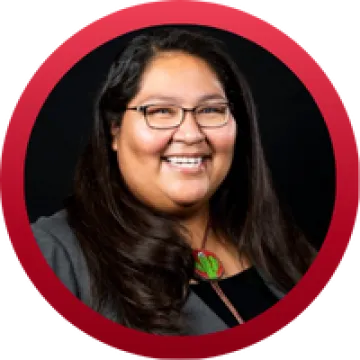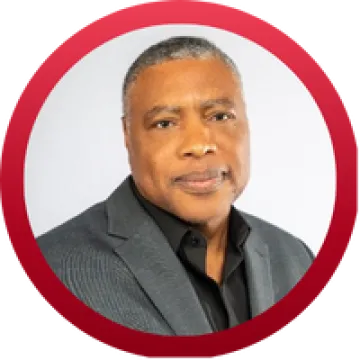
When
Where
As a person with a disability, voting is your fundamental right, and equal access and accommodations are protected by federal laws. In this webinar, guest speakers will discuss your rights, how to prepare to vote as a person with a disability, and what accommodations are available. We will also explore what voting looks like for Native communities.
No matter where you are in the voting process, we invite you to join us for this webinar during Disability Voting Rights Week to learn how to access your power in the upcoming election!
SPEAKERS

Gabriella Cázares-Kelly
Pima County Recorder
Gabriella Cázares-Kelly (she/her) was elected Pima County Recorder in November 2020 and began her administration in January 2021. She leads an office that oversees voter registration, early voting and document recording for Pima County. She is a proud, union-dues-paying, former public school educator and community organizer. She is one of four women who co-founded Indivisible Tohono, a grassroots, community organization that provides education and civic-engagement opportunities for members of her tribe, the Tohono O’odham Nation. She was inspired to run for office after encountering many systemic barriers preventing people from simply registering to vote.
Gabriella is a proud product of Pima Community College, holds a bachelor’s degree from the University of Arizona and a master’s degree in Educational Leadership from Northern Arizona University. She lives in Tucson with her husband, Ryan, and their two children, who are now of voting age. She enjoys writing, drawing and documenting her observations as a 21st Century Native American on social media. She is the first Native American to hold an elected Pima County office and the third Native American to hold a county-level office in the State of Arizona.

Renaldo Fowler
Senior Staff Advocate, Disability Rights Arizona
Renaldo Fowler is a Senior Staff Advocate with Disability Rights Arizona (DRAZ) where he has been employed since 1984. Renaldo joined ACDL following his graduation from Arizona State University and has worked in the disability advocacy field for four decades. He has been a voice in the state regarding racial discrimination, bias discipline practices, as well as the disproportionality, over identification and underserved needs of African American students in special education. Renaldo is also co-founder of the African American Conference on Disabilities (AACD). The AACD is a premier comprehensive disability conference in the United States that addresses the intersection between race and disability.
In January 2014, Renaldo was promoted to coordinate the Protection and Advocacy for Voting Access program (PAVA). The purpose of PAVA is to ensure persons with disabilities have an opportunity to vote privately and independently and have full participation in the electoral process, in registering to vote, casting a vote and accessing polling places.
Renaldo has worked with Arizona’s Elections officials and advocates from the disability community to improve access to the electoral process for Arizonans with disabilities.
Funding was made possible in part by the Arizona Developmental Disabilities Planning Council as part of the Native Center for Disabilities project. The Arizona Developmental Disabilities Planning Council is supported by the Administration for Community Living (ACL), U.S. Department of Health and Human Services (HHS) as part of a financial assistance award totaling $1,500,930 with 100 percent funding by ACL/HHS. Council efforts are those of the grantee and do not necessarily represent the official views of, nor an endorsement, by ACL/HHS, or the U.S. Government. The views expressed in written materials or publications and by any speakers and moderators do not necessarily reflect the official policies of the ADDPC or the Administration for Community Living, the U.S. Department of Health and Human Services, nor does mention of trade names, commercial practices, or organizations imply endorsement by the U.S. Government.